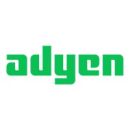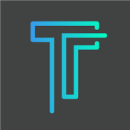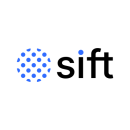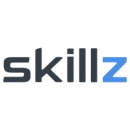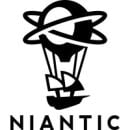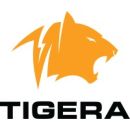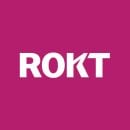San Francisco is the global tech industry’s center of gravity. Its companies collect, protect and analyze much of the world’s data. They equip machines with the capability to do our work for us, both in cyberspace and in the physical world — and create whole new professions in the process. They build digital portals that take us into new worlds, all without leaving our living rooms. Here are some companies you should know.
Top Tech Companies in San Francisco
- Benchling
- Sensor Tower
- Brex
- Front
- Plaid
- Lattice
- Nuna
- Aurora Solar
Gusto is an online people platform that helps small businesses with tasks like team management, full-service payroll, health insurance and 401(k)s. Its Gusto Solo program is designed to help self-employed entrepreneurs to unlock potential tax savings and reduce compliance risk. The company’s local office is between the Bay and Potreto Hill.
Fintech platform Upgrade offers affordable and responsible credit, a mobile banking app and payment products to everyday consumers. While the company is headquartered in San Francisco, it has a handful of other offices across the continent.
Using the power of sequencing, population-scale clinical studies and and data science, GRAIL is dedicated to early cancer detection through the development of related tests. Headquartered in Menlo Park, the company also has offices in Washington, D.C., North Carolina and London, England, with remote or in-person work schedules dependent on specific roles.
Deputy offers a software platform for workforce management that includes features for data-driven employee scheduling, accurately recording team members’ hours, streamlining compliance with applicable labor laws and overseeing PTO requests. The company’s solutions serve industries such as healthcare and retail.
Superhuman is a San Francisco-based startup offering an advanced email platform designed for so-called “power users” who aim to reach inbox zero. The app includes features like keyboard shortcuts, reminders, a calendar and an undo send option. It also incorporates game design principles to enhance user experience. kikoff
Headquartered in Chicago with an office in San Francisco and a number of support centers around the world, iManage offers a secure cloud environment for scalable and reliable access to crucial information. The company provides software that helps law firms and other paperwork-heavy businesses manage documents efficiently and in compliance with privacy laws. Its tools enhance productivity through AI, security, and document and email management capabilities.
Philo is an internet television company founded with the intention of solving the problem of too many siloed entertainment channels. Instead of paying for multiple streaming providers and logging in and out of various dashboards, users can personalize their live TV and on-demand programming within a Philo subscription. The service can be accessed on Mac web browsers as well as various types of connected televisions. The company’s home base is in San Francisco.
Fintech company Kikoff offers digital financial tools designed to help consumers build credit histories. By extending various types of strategic loans and secured credit, the company assists new consumers and those with flawed credit to build and repair their credit history to improve their consumer credit score. The company is based in San Francisco.
Publica is a CTV adtech company that runs a platform for managing and deploying advertising content. Clients use it to predict the timing of ads so they can make decisions for their own content (like spacing their ads out from competitors’ and capping ad frequency). The company is responsible for more than 3 billion connected TV ads each month, and serves clients including Samsung, Fox and MLB.
Edtech company Course Hero facilitates online learning by compiling course-specific resources, including study guides, class notes and practice problems, sourced from a community of students and educators. With support from educational content specialists and subject matter experts, the platform helps students understand and retain study materials, while offering personalized assistance through live tutoring sessions.
Sanity operates a content management platform where clients can access materials in various mediums to adjust, personalize and manage them for their precise needs. Because Sanity treats content like data, rather than static entities, users can adapt and customize any content on the Sanity platform by using programming languages, resulting in a fully custom piece of content. At scale, this allows clients to create content workflows that are tailored to their own process needs.
Navan specializes in tech solutions for corporate travel and expense management. Its software is built to make it easy to organize trips and events, access 24/7 travel support, issue corporate cards, reimburse employees for out-of-pocket expenses and view real-time insights on employee spending.
Software teams turn to Render’s cloud-based platform for reliably building and hosting digital products. Its features include load-based autoscaling, preview environments, automatic deploys with zero downtime and notifications for staying on top of deployment activity. The company has pricing packages to meet the needs of customers ranging from students to enterprise-level businesses.
Duo Security offers a zero-trust security platform with multi-factor authentication capabilities and other access management solutions to bolster cybersecurity strategy for its customers. Duo’s product is designed to meet the needs of businesses and organizations of all sizes, such as schools, government agencies, banking apps, telemedicine services and retailers.
Adyen is a fintech company that started out specializing in payment processing and has expanded to bring businesses other data and financial management tools as well. Its platform includes risk management features designed to prevent, detect and respond to fraud, for example, along with access to data insights to inform business decisions.
HoneyBook makes SaaS products for small business management, with a focus on serving solopreneurs. Its products, which are used by over 100,000 small businesses across North America, include tools and solutions for scheduling, communications, contracts, invoicing and payments.
Headquartered in SF since its founding, ThousandEyes is a network performance monitoring company that offers SaaS products to help client businesses gain insights into their users’ digital experiences. It offers software that observes clients’ network activities in order to improve digital workflow, troubleshoot issues and maintain network quality. ThousandEyes is trusted by enterprise giants like Comcast, eBay and HP.
Thousands of bakeries, fine dining establishments, bars, food trucks and other food and hospitality businesses look to Toast for tech solutions that facilitate smooth operations and optimal customer experiences. Its product portfolio touches on everything from self-ordering kiosks and mobile ordering systems to managing employee scheduling and payroll.
Spotnana’s Travel-as-a-Service platform works to personalize travel booking and power global travel experiences. The company provides a single cloud-based platform to corporations, travel management agencies, suppliers and technology providers. Their corporate travel platform allows travel agents to view the same content, profiles, trips and negotiated rates as the travelers with whom they partner.
Udemy is an online course marketplace that offers curricula for a wide range of tech, business and leadership skills, from coding and programming to drawing. Its deep repository of courses means that many course offerings provide detailed instruction on highly specialized topics. More than 14,000 companies have worked with Udemy to provide their employees with learning and development opportunities.
Reddit operates a platform that features more than 430 million active monthly users with the goal of sharing content and building community around a limitless range of topics. Users can create posts within smaller communities of users, or “subreddits”, that feature media, content and opinions shared freely with the community of subscribed users. Reddit is considered a go-to source for breaking news and communicating directly with entertainers and personalities and the site features over 2.6+ million active subreddits as of January 2021.
Life360 is a wellness company that brings peace of mind to families all over the world. The company’s app helps families keep tabs on family members by showing their whereabouts, sharing if they’re currently driving and even marking favorite routes that each member likes to take. Life360 is available in monthly subscriptions, so families can have constant peace of mind about the safety of their loved ones.
Benchling’s software for research and development in the life sciences centralizes and standardizes data, offering functionality that can track workflows, analyze outcomes and model everything from sequences to cell lines. The company was founded with the mission of bringing research software — often old and outdated — in line with the rapid-fire pace of discovery in labs the world over. The company has raised $61.2 million to date, receiving funding from the likes of Andreessen Horowitz, Benchmark, Menlo Ventures and Thrive Capital.
For app developers at companies like Reddit, NBCUniversal and Adobe, Sensor Tower is the go-to analytics platform for measuring performance. The company achieved this status despite minimal funding, having accepted little more than $1 million in outside investment since it was founded in 2013. Users can measure traffic, downloads, ad performance and more, and then compare their creations with competitors and the ecosystem at large. Media outlets like the New York Times, Wall Street Journal, CNBC and TechCrunch all regularly cite Sensor Tower data.
Plaid started out in 2012 building APIs that helped users access their bank accounts within applications. Since then, the company has grown into a fixture of the San Francisco tech scene, extending their API offerings to a number of different arenas including transaction history, authentication, real-time balance information, identity verification and more. The technology has driven Plaid into unicorn status, with $350 million in reported funding. Investors like Visa and Mastercard hopped on the bandwagon for its $250 million Series C last year.
As startups scale and enterprises adapt to changing business conditions, it can be hard for employees to keep track of individual and team goals. For Lattice co-founders Eric Koslow and Jack Altman — the younger brother of former Y Combinator President Sam Altman — the solution was to rethink performance management altogether. The software they’ve built streamlines management processes and offers tools to provide performance reviews, feedback and goals, along with functionality to set agendas and action items for one-on-one meetings. The company raised $25 million in Series C funding last month, which brought its valuation to a reported $200 million.
As a child, Nuna founder and CEO Jini Kim helped her parents — immigrants from Korea — fill out the necessary forms to enroll her younger brother, who has severe autism, in Medicaid. Ever since, Kim has focused her work on the intersection of healthcare and technology. She’s worked as a product manager on Google’s attempt to build a digital health records service and helped to fix the federal government’s application website for the Affordable Care Act. Since 2010, she’s served as CEO of Nuna — which means “big sister” in Korean — to build a centralized data warehouse for 74.5 million Medicaid patients. Nuna has partnered with governments, health plans and provider systems to leverage data to create better health outcomes for patients.
Designing and installing solar panels traditionally involves a lot of back-and-forth travel. What is the building’s roof layout? Where does shade travel over the course of the day? How much energy does the customer use? Aurora Solar wants to eliminate the legwork with desktop software that can produce detailed system designs and cost estimates for residential and commercial customers. Aurora Solar says its technology is currently capable of reaching more than 90 percent of the U.S. population, and has been used in some 2 million projects worldwide.
Tray.io seeks to turn nontechnical team members into what it calls “citizen automators” through a no-code platform aimed at automating and standardizing various tasks and workflows. The platform is built in a serverless environment and is completely driven by APIs. This, the company says, allows for a more scalable infrastructure. The company raised $37 million in Series B funding earlier this year. At the time, Tray.io claimed it saw 450 percent revenue growth and had household names like IBM and Lyft as customers. Founded in 2012, the company has offices both in San Francisco and London.
Webflow wants to take no-code web development and publishing a step further, offering a platform where users can non-coders and coders alike can visually develop responsive websites to help accelerate their marketing. CEO Vlad Magdalin left his engineering job at Intuit to start Webflow with his brother Sergie and a friend, Bryant Chou, in 2012. The company had raised just $2.9 million in its first seven years until it announced a whopping $72 million Series A this past August. Webflow’s websites are powered by AWS and come with built-in SEO tools. The company now lists Eventbrite, Adobe and NASA as customers.
As housing costs rise, startups across the country are testing novel avenues to help renters become homeowners. One out-of-the-box approach comes from Divvy Homes, whose rent-to-own solution purchases a customer’s desired property in return for a 2 percent fee up front. The customer then rents the home directly from Divvy, which in turn diverts around a quarter of every installment to help fund a down payment. The company says users can qualify for a mortgage in three years or less. While the service is only available for homebuyers in Atlanta, Cleveland and Memphis, co-founders Adena Hefets and Brian Ma have already raised $180 million in cumulative funding to invest in technology and expand to additional markets.
Tempo Automation’s software optimizes the way electronics and robots are developed through quick prototyping. The company specializes in rapid prototypes that are available in as little as three days. Tempo’s patented software is able to constantly keep manufacturers in-the-know when it comes to both production process and costs. Tempo Automation’s platform is used by the aerospace, medical and manufacturing industries to efficiently produce new robots and machines to reach even greater levels of innovation.
Many developers work in uncharted territory, building tools and features that weren’t even possible a year earlier — and race to beat competitors in the process. That means that a business that produces error-free code all the time likely isn’t moving fast enough. To minimize the impact of those inevitable errors, Sentry offers a range of software development kits for a variety of tech stacks aimed at helping developers identify and fix production errors across all applications. The technology automatically captures unhandled exceptions, bundles individual errors with larger issues, offers added context about an application’s state and can connect an issue to the commit that’s likely behind it.
Crunchyroll is a worldwide media network featuring entirely on anime and manga-focused content. In addition to hosting top shows like One Piece, Fullmetal Alchemist and One-Punch Man on its network, Crunchyroll is also home to news, mobile games, merch and forums where users can take their fandom to the next level.
Afterpay offers e-commerce shoppers and brick-and-mortar customers an option to defer payments on purchases to a later date through its “buy now, pay later” platform, allowing payments to be made in more manageable installments. The platform features no credit checks and installments do not accumulate interest over time. Afterpay is available for use at many leading brands and retailers, including Adidas, Fenty Beauty, Ulta, Marc Jacobs and DSW.
Bolt provides a unique checkout experience platform that allows e-commerce companies to take advantage of 1-click checkout capabilities, boosting customer conversion and retention rates while creating exceptional customer experiences. The platform streamlines checkout fields and allows users to pull in information stored across Bolt’s network of partner brands like Forever 21 and Brooks Brothers while additionally allowing retailers to create a custom, branded experience for its shoppers.
Gong is an AI-powered revenue intelligence platform that provides sales teams with unparalleled insights and visibility into their business. The platform includes real-time data on markets, executed deals and team performers excelling in their roles for better forecasting, leading to a 38% average decrease in sales cycle length and a 44% average increase in win rates, based on existing customer results.
Lemonaid Health is an intuitive telemedicine platform that allows users to access prescriptions and quality healthcare from the comfort of their homes. Users simply fill out an online questionnaire regarding their health history, existing conditions and ongoing symptoms, which Lemonaid’s team of medical professionals then review and follow-up on before sending appropriate medication in 2-3 days. Lemonaid can assist patients with everything from hair loss and acne to anxiety, depression, insomnia and more.
MasterClass is an online learning platform in which users can subscribe to lessons and courses from experts in specific crafts. Teachers include masters at a variety of arts and disciplines, such as Gordon Ramsey teaching cooking, Steph Curry teaching basketball and Malcolm Gladwell on writing, with additional instructors broaching topics such as business, music, design and wellness.
Sift is a machine learning-driven platform that helps stop online fraud through a suite of digital trust and safety capabilities. The platform features tailored integrations and a global fraud database designed for constant expansion, currently housing a library of more than 16,000 fraud signals that help digital stores identify and stop suspicious behavior at the right moment — leading to higher levels of trust from customers.
Varo is a mobile banking app that provides users with access to no-fee checking accounts, high-interest savings accounts and personal loans. By downloading the Varo app, users can access more than 55,000 ATMs at no extra cost, with no foreign transaction fees or monthly charges included within the platform. Varo users are also able to receive their paycheck two days earlier through direct deposit and savings account holders have the opportunity to save up to 2.8 percent APY without worrying about making certain purchases or maintaining a minimum balance.
Front takes the endless stream of notifications, pop-ups and messages that distract white-collar workers and unifies them under a single, shared inbox. The application has tools for group email management and multi-channel inboxes, which help to avoid duplicate responses and missed messages. The company’s co-founders — CEO Mathilde Collin and CTO Laurent Perrin — stands by its efforts to reduce unnecessary screen time, offering health and wellness bonuses to employees who cut phone time down to fewer than 14 hours a week.
Just months after selling AppDynamics to Cisco in 2017 for $3.7 billion, Jyoti Bansal got to work on his next venture. The new startup, called Harness, bills itself as tech’s first “continuous delivery-as-a-service” platform. Through machine learning technology, it works to automate the entire continuous delivery cycle and protect infrastructure when deployments fail. Since its founding, the company has raised $80 million in funding and brought on big-name clients like McAfee, SoulCycle and Home Depot.
By the time Henrique Dubugras and Pedro Franceschi turned 20, they had already built and sold their Sao Paolo-based payment startup, Pagar.me. The young entrepreneurs then moved to Silicon Valley to study computer science at Stanford — and promptly dropped out. Now, they’re courting investors and customers alike with a new startup called Brex. The company’s signature product is a corporate card for startups that offers tools to automate expense management, eliminate receipt tracking and integrate with existing accounting systems. Between securing $380 million in funding, reaching unicorn status six months post-launch and signing customers like SoFi and Airbnb, Brex has quickly become one of San Francisco’s most talked about startups.
For many first-time homebuyers, the excitement of receiving those keys is tempered by a mountain of paperwork and indecipherable legalese. Snapdocs digitizes the paper, allowing interested parties to collaborate and track obligations via its platform. The technology comes with specialized portals for title and escrow services, lenders, signing agents and buyers alike. Snapdocs says it currently touches more than $25 billion in mortgages every month, and the company just announced $25 million in Series B funding which it will use to develop its AI offerings and open a second office in Denver.
More than 60 percent of the United States has access to only one high-speed internet provider — or none at all. Common Networks aims to change that, providing 5G wireless broadband to five Bay Area cities (with more on the way). The company was founded in 2016 by four Square alumni with experience in product, business development and engineering, and is led by CEO Grace Chen. The company recently revealed that its millimeter wave service, a core 5G technology, is based on Terragraph, an open-source design created by Facebook as part of its Telecom Infrastructure Project.
Skillz wants to take mobile gaming to the same levels of professional e-sports competitions. The company’s software development kit allows game developers to turn their mobile game into a competitive e-sport, meaning any user with a mobile phone can compete for prizes in head-to-head matches, bracketed tournaments or live events with tens of thousands of other players. Skillz says it currently hosts more than 30 million players and runs close to 4 million virtual tournaments daily.
Niantic is a preeminent name in augmented reality gaming. The company’s founders first worked together on Keyhole, a map exploring tool acquired by Google back in 2004, before founding Niantic in 2010. The startup released the sci-fi favorite “Ingress” in 2013 and spun out as an independent company in 2015. Shortly thereafter, it gained fame for the smash hit “Pokemon Go.” Never a group to rest on its laurels, the company then released “Harry Potter: Wizards Unite” earlier this year. And while the 2016 hype may have passed, “Pokemon Go” is still set to generate almost as much revenue in 2019 as it did in its first year.
If you’re building complex systems like autonomous vehicles or spacecraft, you need the ability to simulate how your designs will physically react to a variety of conditions. For that type of scenario, San Francisco-based Rescale creates high-performance computing infrastructure and matches clients’ software applications with the best-suited architecture — either in the cloud or on-premise — to run large data processing and simulation operations. One of Y Combinator’s more successful alums, the company has more than $50 million in reported funding.
In the race to put software behind the wheel of the world’s semi-trailer trucks, Embark is an unlikely frontrunner. For starters, Canadian co-founders Alex Rodrigues and Brandon Moak are still on the green side of 25. Furthermore, the company’s technology relies on sensor data and onboard machine learning instead of high-resolution mapping. Last year, the team used their approach to send a truck on a largely autonomous, 2,400-mile cross-country trip from Los Angeles to Jacksonville, Florida. The startup recently raised $70 million in a Series C funding round led by Tiger Global Management, bringing its war chest to a whopping $117 million.
By connecting an e-commerce platform to Shippo, online businesses can automatically sync order information and create the labels and documents they need to fulfill orders. Shippo caters to both international and domestic shipping, offering functionality for tracking and order return. With the ability to personalize labels and send customer notifications, Shippo also tries to help customers keep branding consistent across all touchpoints. CEO Laura Behrens Wu and President Simon Kreuz started Shippo in 2014 as an API, but later began to build out their own applications. The company has raised $30 million in funding to date.
Classroom learning has sprawled onto multiple platforms across multiple devices. The result is a separate login for disparate software and, inevitably, forgotten passwords. Clever’s solution is, well, pretty clever — a single sign-on portal for all of the edtech software a classroom uses. It’s currently in use at more than half of all K-12 schools in the United States. The technology provides portals for teachers, students and staff, and allows educators to review and exchange notes on different edtech tools. What’s more: Clever makes its money from the companies whose software students access through its portal, meaning the technology doesn’t take a cent from school district budgets.
With a human driver at the wheel, navigation systems can afford to get a little confused by tunnels, parallel frontage roads and overlapping bridges every once in a while. But it’s a different story for self-driving cars. While the autonomous driving space is competitive, few companies have approached the GPS problem quite like Swift Navigation. The company started out in 2012 producing a device that pinpoints location down to fractions of an inch, combining satellite data with a series of base stations to identify not only the direction and velocity of travel but also which lane the vehicle is in at any given time.
Airtable describes itself as part spreadsheet, part database, and offers a wide range of applications under that umbrella. The company reached unicorn status last November after bringing in a $100 million Series C at a $1.1 billion valuation. Founded in 2012, Airtable’s goal is to help non-coders import, organize and optimize their datasets. The idea is not to build a one-size-fits-all database, but rather a hyper-customizable tool users can sculpt to their individual likings.
Ouster is helping to usher in the autonomous revolution with its three-dimensional lidar sensors — an essential requisite to help machines perceive their surroundings. The company’s customers are engineers moving the needle on robotics, autonomous vehicles, mapping technology, security systems and more. Founded in 2015, Ouster has been linked to NVIDIA’s self-driving car efforts, which are due for commercial launch in 2022. The company has raised $90 million in funding to date, including backing from automotive giant Cox.
It’s hard to keep communication styles consistent. Every department can (and does) do its own thing, from marketers writing ad copy and recruiters outlining job posts to sellers sending cold emails. Qordoba’s AI-driven platform analyzes all of that written content for quality standards like spelling and grammar, but also considers factors like brand voice, reading level, jargon and possible plagiarism. Qordoba’s co-founders — CEO May Habib and CTO Waseem Ashikh — moved halfway around the world to build the company here in San Francisco, and have raised more than $21 million to date.
Atomwise says its technology reduces the time it takes to discover and create new, experimental medications for afflictions like Multiple Sclerosis and Ebola. How? Through the same neural network AI technology that other companies use for facial recognition and autonomous navigation. According to the company, this technology can model tens of millions of molecules and locate those with the potential to perform a certain function, like blocking a specific protein. Researchers can then use Atomwise to find and order those molecules from a third-party source and apply the AI’s pattern-recognition capabilities to speed up drug discovery and development.
While many marketing software companies try to reach as many people as possible, BlueShift says its customizable marketing campaigns are designed for an audience of one. The company unifies siloed data — including customer behavior across multiple devices, CRM data and product catalogs — and uses that information to fuel an AI-powered dashboard through which marketers create extremely personalized ads. The result is a tailored message based on a user’s unique online behavior, rather than their demographics. The company has amassed more than $25 million in funding over three rounds, including a $15 million Series B led by Softbank’s early-stage venture arm.
Na’ama Moran is a serial Bay Area entrepreneur with a track record. Two of her previous startups — Sourcery Technologies and Zappedy — were acquired by Lavu and Groupon, respectively. Her latest project is Cheetah, which seeks to alleviate a major headache for the food service industry by giving chefs and restaurateurs the ability to order ingredients via smartphone. The technology tackles interesting logistical challenges — connecting users with preferred vendors, coordinating deliveries and ensuring freshness of the ingredients — that all help transform the restaurant industry’s back-end operations.
Directly taps its clients — including Microsoft, LinkedIn, Airbnb and Samsung — to transform what they dub “super users” into third-party customer support superstars. Directly pays those super users for detailed answers to support questions, which are then combined with machine learning to serve up automated responses to similar queries in the future. Each time their answer helps out a customer, the super user gets another check. The technology impressed Microsoft enough to turn them from a customer to an investor. The software giant’s VC arm, M12, contributed to Directly’s $20 million Series B in April of 2019.
A scarcity of funding means that nonprofits — even the most well-known — are often stuck with antiquated software that’s ill-suited for processing donations, managing grant applications and other needs common within philanthropic organizations. To change that dynamic, Fluxx offers cloud-based grant management software platforms both for nonprofits and grant providers. Users can find funding opportunities, track deadlines and documents, automate certain tasks and even share the results of their efforts with peers. CEO Madeline Duva has led the company since 2017, after leading early smartphone software firm China Mobilsoft through an acquisition.
This year, Fyusion unveiled new three-dimensional imaging technology that gives marketers a way to show off products against backdrops both realistic and fantastical. The company launched in 2013 with tech that turned smartphone photos into augmented reality holograms, but it has since pivoted to help sales and marketing teams create immersive experiences around products like furniture and clothing. Businesses capture product images using smartphones, drones or DSLR cameras and embed additional information within a virtual experience. Users can then inspect the product from a number of different angles within an immersive and contextual environment.
It might not feel like it on the streets of SoMa, but software engineers are in short supply. And building tech teams can be hard for enterprise stalwarts and resource-short startups alike. That’s where Gigster comes in. The company talks to companies about their technical projects, guides their decisions around what to build and then assembles an on-demand team of engineers, designers and project managers to get to work. Founded in 2013, the company now works with investment banks, healthcare giants and startups across the world.
In late 2012, Alyssa Ravasio spent hours scouring the web for the perfect beach campsite and booked what she thought was a solid spot. But none of those resources mentioned a nearby surf break. So, having left her board at home, she was forced to sit on the sand and watch gorgeous waves roll in unridden. That experience led Ravasio to found Hipcamp, a platform where private landowners open their property for campers. The company provides a handy alternative to adventure seekers frustrated by the perennially booked-out public campground system. Hipcamp has attracted $50 million in funding from Andreessen Horowitz, Jay-Z’s Marcy Venture Partners and Will Smith’s Dreamers VC, among others.
Smartphones offer a number of embedded tools (accelerometers, GPS systems, SMS functionality, cameras) that developers lean on to build consumer apps. Instabase wants to build out a similar environment, but for businesses. The company offers a suite of tools for data extraction and classification, income and identity verification, document reading, computer vision, natural language processing and more. The idea is that developers can leverage these tools — similar to how Uber uses the iPhone’s GPS, or how Instagram uses its camera — to create business solutions. After a few modest funding rounds since its launch in 2015, the company raised a whopping $105 million Series B this past October.
Whether it’s a barista at your coffee shop or a software rep cold calling your business line, the economy revolves around sales. To help sales teams improve their skills, MindTickle has built technical and educational tools for onboarding and continuous training. The company’s applications are designed to offer sales leaders a comprehensive assessment of how their teams are tracking on key metrics, with insights on how to improve over time. The company has raised more than $80 million since it was founded in 2011, including a $40 million Series C in July.
Staffed by machine learning experts from UC Berkeley, Stanford and MIT, Osaro builds artificial intelligence technology to power robots for industrial production lines. The company’s software features integrated perception and control functionality for mundane tasks within industrial e-commerce and fulfillment facilities. Osaro says it’s also testing out the software on robots designed to pick out irregularly shaped food items, an extension of the tech’s interpretative and decision-making capabilities. Founded in 2015, the company raised $16 million in Series B funding in October to finance its projects and begin international deployment.
Pilot’s three co-founders — CEO Waseem Daher, CTO Jessica McKellar and COO Jeff Arnold — have been here before. The company is the third they’ve partnered on, after selling a Linux security startup to Oracle in 2011 and a workplace chat solution to Dropbox in 2014. The trio, who met at MIT during their undergraduate studies, are now working to soothe the bookkeeping woes that plague small business owners. Pilot uses a combination of software and human customer service to automate the production of reports that give business owners a clear view of their finances — without having to puzzle over the sums themselves.
The first iteration of Postman was a side project for CEO Abhinav Asthana as he tinkered with simplifying the API testing process. Co-founders Abhijit Kane and Ankit Sobti joined soon after, and the trio officially founded the company in 2014 as a collaboration platform and development environment for API builders. Since then, Postman has built technology that touches all elements of the API workflow, from shared contexts for building APIs to simulating behavior before production. According to the company, some 8 million developers at 400,000 companies have worked on more than 250 million APIs using Postman’s platform.
As businesses turn to Kubernetes to automate application deployment at scale, cybersecurity companies have scrambled to protect these new, container-based systems. One of the emerging leaders in the field is Tigera, which builds tools that extend existing firewall technology to protect Kubernetes clusters. The company ensures customer compliance through a zero-trust model that encrypts traffic and enforces admin-set policies. Tigera covers Kubernetes container deployments for the likes of AWS, Microsoft Azure, Google Cloud and IBM Cloud and has raised more than $50 million in funding across three rounds since it was founded in 2016.
Data is becoming one of the world’s most valuable commodities, and businesses of all stripes have turned to technology to transform it into cash. But it takes resources to store data in a way that ensures regulatory compliance and protects users. To solve that problem, the aptly named Very Good Security acts as a sort of digital data bank, storing datasets within its own servers. The company substitutes data for an aliased version in transit, which it says can be stored and used in the same way as the original data without compromising integrity, all while the original information stays locked away in a digital vault.
Academia.edu provides researchers with a platform that allows them to create profiles, connect with other researchers and upload publications. The San Francisco based company aims to offer a way aside from the journal system for scientists to share their work.
Whatnot offers livestreamed auctions where people can bid on and buy items that include fashion, collectibles and jewelry. It allows buyers and sellers to connect online and facilitate sales through live videos. The company works remotely and hires out of California.
Cockroach Labs serves companies in industries that depend on large quantities of data, such as the banking, fintech, media streaming and logistics sectors. The company operates a distributed SQL database where companies can house and use programming data. This solution enables them to scale and take advantage of multiple data clouds.
January offers what it calls “humanized debt collection” through its digital platform that engages borrowers with a plan to pay off their debt. It says its digital-first, empathetic approach allows creditors to increase their recoveries without having to compromise on security or compliance. The company has an office in the Financial District.
Crusoe Energy Systems offers technology to alleviate the frequency and impact of natural gas flaring, which happens when natural gas is burned during the extraction process of oil from the earth. This releases methane and carbon dioxide into the atmosphere. Crusoe converts that gas into power for high-energy-demand computing processes like cryptocurrency mining.
Tarro’s platform supports fast, accurate restaurant service through AI-powered order collection, personalized marketing campaigns and food delivery solutions. The company says its technology is meant to make running a restaurant less stressful by cutting down on wait times and preventing mistakes that can cost time and money.
Alchemy’s blockchain development platform is designed to streamline Web3 app building and provide developers with APIs to support a variety of use cases. Alchemy is a San Francisco-based company that provides its more than 200 employees with benefits like flexible time off, paid parental leave, home office stipends and relocation bonuses.
Businesses can embed Check’s payroll capabilities into their platforms to enhance the solutions portfolio they offer their customers. Its solutions provide thousands of businesses with the tools they need to ensure workers get paid. Check says its payroll infrastructure offers benefits like simplified onboarding and fraud protection.
Atlassian’s mission is to “unleash the potential of every team.” It provides teamwork solutions to enhance collaboration and organization in work management with its range of products including Jira, Trello and Rovo. The company is headquartered in San Francisco, California, and has offices around the world.
Opto Investments is headquartered in New York City and has offices in San Francisco. The tech company works in private markets, aiding investors with fiduciaries. Its intelligent workflows are meant to ease advisor-client experiences, save time and minimize paperwork.
Rokt aims to help its clients create strong relationships with their customers and boost their online sales. It uses machine learning to display product recommendations to customers as they are checking out. The company has clients from industries that include entertainment, retail and travel.
Marketing tech company Klaviyo’s platform applies data analytics and artificial intelligence capabilities to bolster omnichannel customer engagement for brands all over the world. For example, its automation solutions allow businesses to set up custom campaign workflows designed to optimize the customer journey in response to real-time behaviors.
Endpoint Clinical is a global technology company that provides biotech and pharmaceutical companies with interactive response technology, or IRT, services for their clinical trials. It offers solutions for compliance with regulatory requirements, trial data, drug supply and patient randomization. The company is headquartered in Raleigh and has an office in San Francisco’s Financial District.
Samsara’s Connected Operations Platform allows organizations with physical operations to use IoT data to improve their operations. The company supports clients across sectors such as logistics, retail, manufacturing, field services, transportation, warehousing and construction. Samsara is headquartered in San Francisco’s Design District.
Mochi Health offers GLP-1 weight loss medication and clinical support through virtual access to medical providers. The company says it focuses on patient success and long-term health outcomes. Mochi Health’s headquarters are located near San Francisco’s Yerba Buena Gardens.
Assembled’s AI-powered platform is designed to serve as mission control for customer support operations. The technology gives companies access to AI agents they can use to directly engage customers in need of assistance across chat, email and voice. Assembled also has an Assist AI Copilot solution that helps human agents efficiently resolve customer inquiries. The company’s other offerings include workforce and vendor management tools.
MongoDB offers a multi-cloud database platform that’s designed to improve efficiency for software developers. Its operations in California include San Francisco and Palo Alto office locations, and in February 2025, the company announced the acquisition of San Francisco-based Voyage AI, which specializes in embedding and reranking models for AI application building.
WorkWhile aims to redefine workforce management for the modern economy by leveraging artificial intelligence to transform how businesses handle flexible workforces. Its platform uses AI to match hourly workers with shifts that align with their reliability, skills and preferences. Simultaneously, it helps employers optimize scheduling, reduce turnover and boost productivity.














